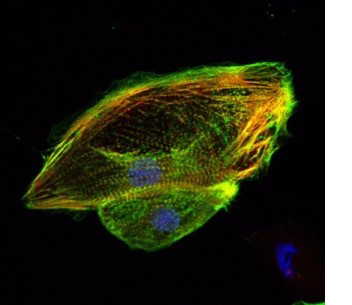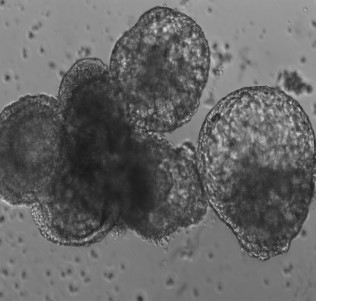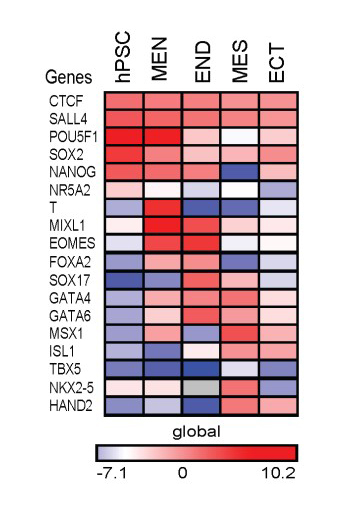Xiaoping Bao
William K. Luckow Associate Professor of Chemical Engineering
Purdue University
School of Chemical Engineering
Forney Hall of Chemical Engineering
480 Stadium Mall Drive
West Lafayette, IN 47907-2100
Research Interests
The major research interest in the Bao lab is to use innovative technologies to engineer stem cells as models of human development and disease, as well to develop cellular and molecular therapies as next-generation of medicine for degenerative diseases, including neurological disorders, heart diseases, β cells for diabetes, T cells for cancers, et al. Our specific interests include:
Stem cell differentiation and biomanufacturing

Human disease modeling and gene editing

Bioinformatives and computational biology

Research Group
Graduate Students
- Po-Yu Liang
- Ting-Jung Sung
- Katherine Hebert
- Jingqiao Shen
Research Associates
- Open Positions: Prospective students and postdoctoral candidates with a background in bioengineering, cell and molecular biology, animal models, or other related area are encouraged to apply. Undergraduate students, exchange students or scholars are also welcome to join the lab. If you are interested, please send your CV to Dr. Bao at bao61@purdue.edu.
Awards and Honors
Selected Publications
Lu Y, Varghese A, Nahar R, Chen H, Shao K, Bao X*, Li C*. scChat: A Large Language Model-Powered Co-Pilot for Contextualized Single-Cell RNA Sequencing Analysis. bioRxiv doi.org/10.1101/2024.10.01.616063 (2024).
Chang Y, Jin G, Luo W, Luo Q, Jung J, Hummel SN, Torregrosa-Allen S, Elzey BD, Low PS*, Lian X*, Bao X*. Engineered human pluripotent stem cell-derived natural killer cells with PD-L1 responsive immunological memory for enhanced immunotherapeutic efficacy. Bioact Mater 27: 168-180 (2023). https://www.sciencedirect.com/science/article/pii/S2452199X23001123.
Chang Y, Cai X, Syahirah R, Yao Y, Xu Y, Jin G, Bhute VJ, Torregrosa-Allen S, Elzey BD, Won Y-Y, Deng Q, Lian XL*, Wang X*, Eniola-Adefeso O*, Bao X*. CAR-neutrophil mediated delivery of tumor-microenvironment responsive nanodrugs for glioblastoma chemo-immunotherapy. Nat Commun 14(1): 2266 (2023). https://www.nature.com/articles/s41467-023-37872-4.
Chang Y, Deng Q, Bao X*. A pluripotent road to immunoengineering. Nat Rev Bioeng (2023). www.nature.com/articles/s44222-023-00056-2.
Bao X, Lian X, Hacker TA, Schmuck EG, Qian T, Bhute VJ, Han T, Shi M, Drowley L, Plowright A, Wang QD, Goumans MJ, Palecek SP. Long-term self-renewing human epicardial cells generated from pluripotent stem cells under defined xeno-free conditions. Nat Biomed Eng. 2016 1; doi: 10.1038/s41551-016-0003.
Lian X, Bao X, Zilberter M, Westman M, Fisahn A, Hsiao C, Hazeltine LB, Dunn KK, Kamp TJ, Palecek SP. Chemically defined, albumin-free human cardiomyocyte generation. Nat Methods. 2015 Jul:12(7): 595-6. doi: 10.1038/nmeth.3448.
Patents
"Methods for epicardial differentiation of human pluripotent stem cells", Palecek SP, Bao X, Lian X., US Patent, US10131878B2 (2018).
"Chemically defined albumin-free conditions for cardiomyocyte differentiation of human pluripotent stem cells", Palecek SP, Lian X, Bao X., US Patent, US9765299 B2 (2017).
"Simplified methods for generating endothelial cells from human pluripotent stem cells under defined conditions:, Palecek SP, Lian X, Bao X., US Patent, US9290741 B2 (2016).
"Generating aorta-gonad-mesonephros-like hematopoietic cells from human pluripotent stem cells under a defined condition" Bao X, Chang Y. US Patent App. 17/800,320 (2023).
